How to Find the Top Plastic Surgeons in the US
As aesthetic medicine and surgery have become increasingly more popular over the years, more physicians and non physicians are offering plastic-surgery-related services in their practices to fill this demand. What compounds this phenomenon is that reimbursement for insurance-covered medical services, in general, have been decreasing or have remained stagnant over the years, prompting many practitioners to enter aesthetic medicine. It is difficult for the public to know who is performing their aesthetic services and what training or qualifications that person has, since transparency is lacking. An unsettling fact is that lawfully, any one with a medical degree (MD or DO) can offer and perform plastic surgery services in an office and call themselves a plastic surgeon, without accredited training in plastic surgery (Board Certification by the American Board of Plastic Surgery). When a physician calls himself or herself a “board certified plastic surgeon”, it is important to know the credentials, training, and board certification of that particular physician.
There is only one residency in Plastic and Reconstructive Surgery accredited by the Accreditation Council for Graduate Medical Education (ACGME) and there is only one board certification in plastic surgery, the American Board of Plastic Surgery (ABPS) (https://www.abplasticsurgery.org), recognized by the American Board of Medical Specialties (ABMS). What this means is that there are many types of doctors that may call themselves plastic surgeons but do not have the comprehensive training or experience of a plastic surgeon with these types of credentials.
Plastic surgery training is one of the most competitive residency programs to be accepted into after medical school. The number of physicians who want to become plastic surgeons is a testament to how great the field of aesthetic and reconstructive medicine is. However, as more unqualified physicians perform plastic surgery, the public suffers. As a result of the lack of public awareness about this issue, more and more patients are being “botched”, as popular television shows have demonstrated. Therefore, how do you determine if your plastic surgeon is a real plastic surgeon?
Make sure the plastic surgeon you are choosing is board-certified by the American Board of Plastic Surgery.
The American Society of Plastic Surgeons (ASPS) has put out a campaign called “Do Your Homework” to educate the public about how and why you should find a board certified plastic surgeon (https://www.plasticsurgery.org/patient-safety/do-your-homework). The American Board of Plastic Surgery, American Society of Plastic Surgeons and the American Society for Aesthetic Plastic Surgery are great resources to find board certified plastic surgeons. Why is it important to find a board-certified plastic surgeon? The answer is simple. It is this certification which acknowledges that the surgeon has adequate credentials to perform plastic surgery procedures safely on the public. When a plastic surgeon is board certified, patients can rest assured that he or she has completed between 3 and 7 years of training in plastic surgery and has also passed all the exams along the way. Additionally, plastic surgeons board-certified by the ABPS must continue their education and recertify every ten years. This ensures that your plastic surgeon is up to date on all the current procedures and has maintained his or her knowledge and skill.
Prepare questions to ask potential surgeons
It is important that any patient conduct in-depth research before scheduling a consultation with a plastic surgeon. This serves to help patients prepare any questions he or she has for the surgeon in order to clear any confusion and determine whether he or she would be comfortable putting his or her appearance, health, and, ultimately, life, in that doctor’s hands. The way in which a good plastic surgeon answers a prospective patients’ questions will alleviate any doubt the patient has regarding the procedure itself and his or her credentials to perform those procedures. If the surgeon is able to answer all questions in a satisfactory manner and has extensive experience with the procedures, the patient can rest assured he or she has made the correct choice.
Double check all of a doctor’s credentials before going under the knife
Initially, when a patient reviews a plastic surgeon’s credentials, he or she might be in awe of all that doctor seems to have accomplished. However, it is important that you double check all the credentials through a credible and reliable source. Just as candidates for office jobs lie on their resumes, there are plenty of surgeons who are touting false accomplishments on their websites to entice patients. Therefore, make sure you get the resume double checked before making your final decision. You can find plastic surgeons board certified by the American Board of Plastic Surgery at the following site: https://www.abplasticsurgery.org.
Ask about hospital privileges
Even for outpatient procedures, it is very important that anyone considering plastic surgery procedures ask the surgeon about the various hospital affiliations and privileges he or she has and where the surgery will be performed before deciding to move ahead with the surgery. If a surgeon says there are no hospital amenities for you to use, consider this to be a huge red flag. This means the surgeon may not be able to perform these surgeries in a hospital setting due to not having appropriate training or credentials. The criteria for having privileges at a hospital are much more strict and based on expertise, training, and board certification. Most private offices do not have the same vetting or credentialing process. Also worth considering: while many cosmetic procedures are not covered by insurance, reconstructive procedures might be. Ask a doctor for more information on which insurance he or she accepts to avoid being responsible for the entire bill.
By following the above four mentioned recommendations, it is possible to discern which surgeons are trustworthy, and which ones are unworthy of consideration. The importance of due diligence before undergoing any cosmetic procedure cannot be understated. After all, it is a matter of physical transformation, and should never be taken lightly.

















